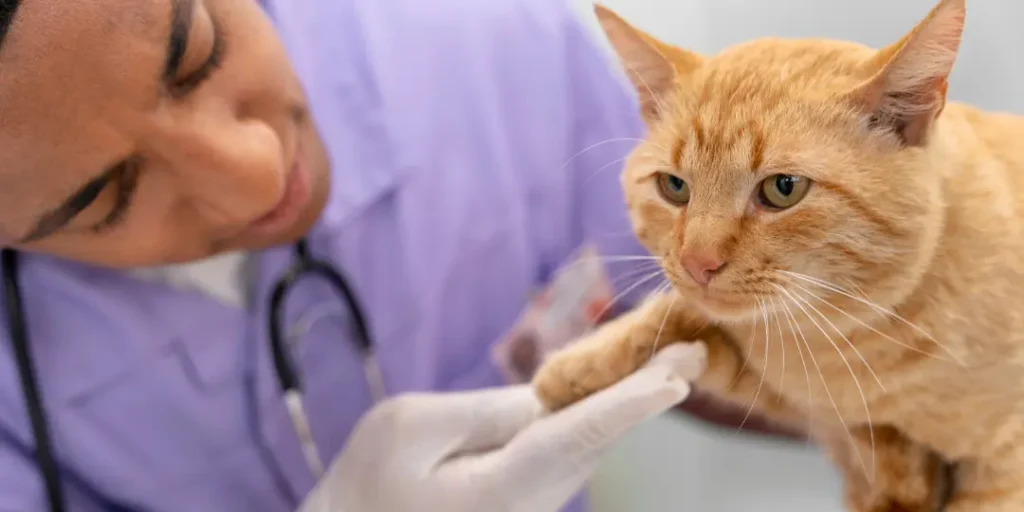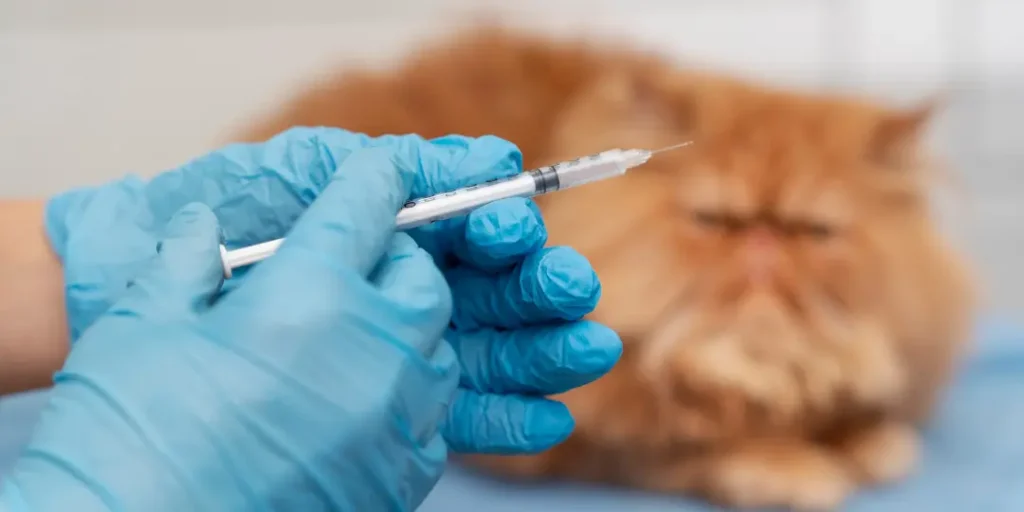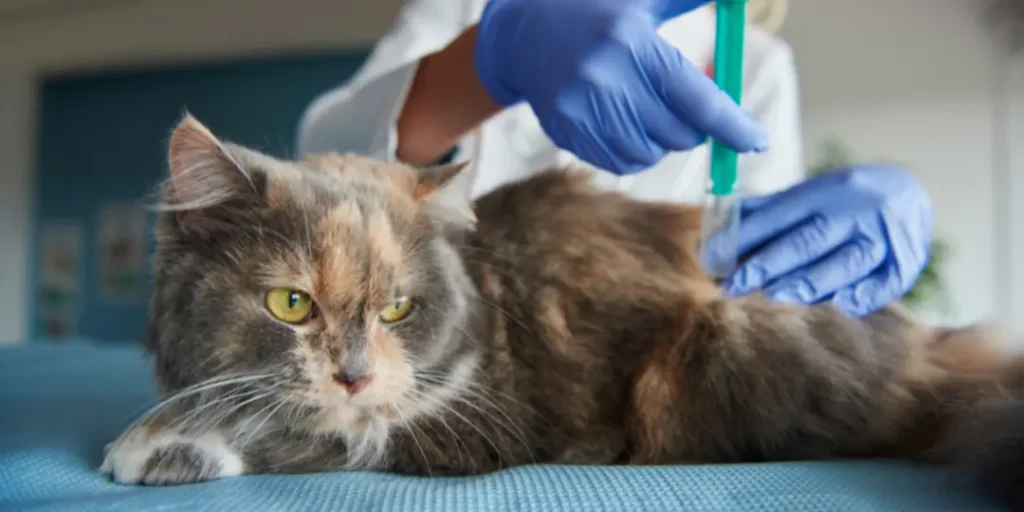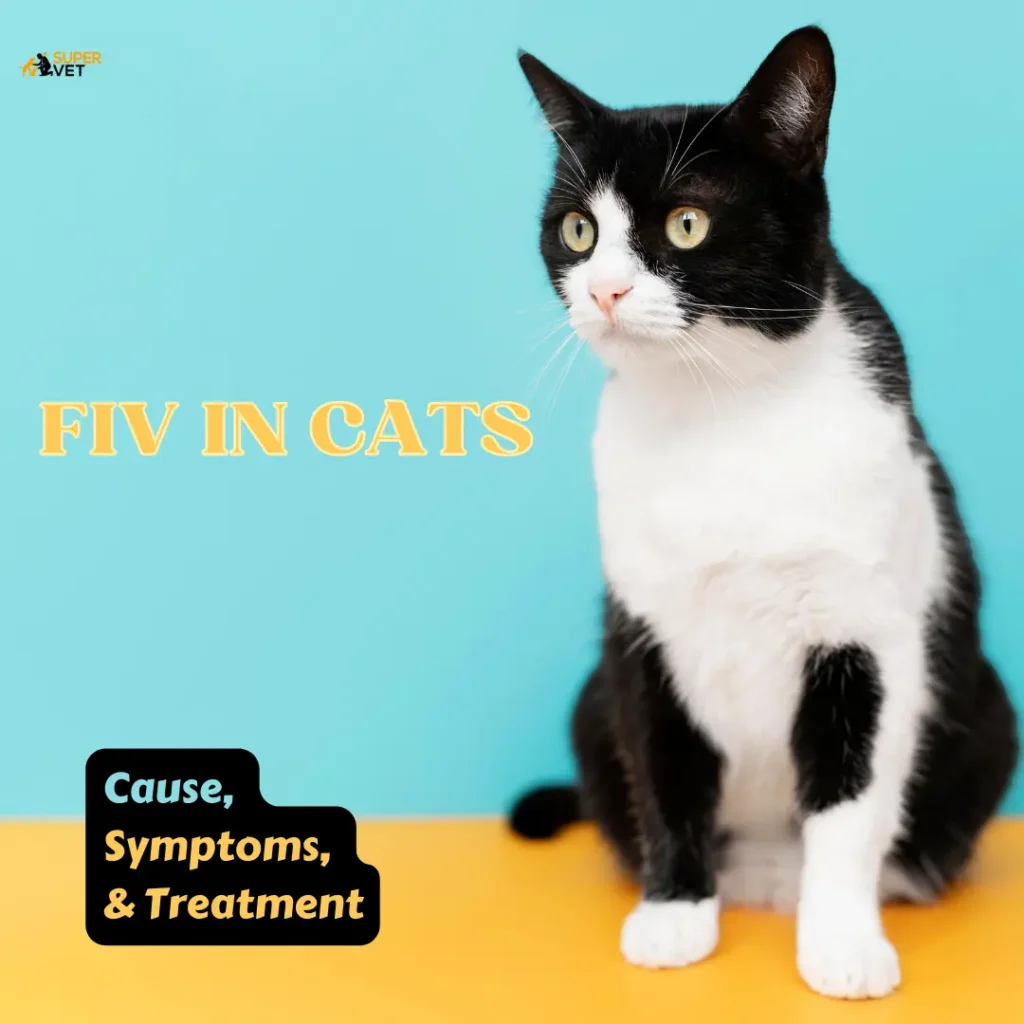Feline infectious virus (“FIV”) is an infection that occurs in cats. It’s also known as feline leukemia and feline immunodeficiency virus (FIV). Some people refer to it simply as “feline.” FIV is a viral disease that affects the cat’s immune system.
There are two main types of FIV:
- feline immunodeficiency virus (FELV) and
- feline infectious virus (FIV)
Both types can infect felines, but only the FELV type can permanently damage the felines’ immune systems. Fortunately, getting FIV positive doesn’t mean your cat has it — or that they need to be put down!
If your cat has FIV, he may appear healthy at first, but his immune system may weaken over time. This makes him more likely to catch a disease that is common in cats — such as mange or distemper.
Keeping your cat healthy and safe can be difficult, but it doesn’t have to be this way. With the right information, you can protect your pet from developing any feline AIDS, also known as FIV.
What is FIV in Cats?
FIV is a type of immune-mediated disease that mostly affects the cat’s immune system. According to the FIV Alliance, the immune system is “the body’s defense against infection”. It’s made up of cells, organs, and molecules that are specialized to recognize and neutralize invading microbes.”
The immune system starts to malfunction when an infected cat is HIV-negative (so-called “auto-immunity”) and then later becomes infected with HIV (so-called “tropical” or “acquired” immune deficiency).
The immune system isn’t able to recognize and destroy the virus as efficiently as it should. The body starts to build up a tolerance to it over time. Which can lead to chronic illnesses such as cancer or immune-mediated diseases like FIV. The FIV Alliance estimates that about 10% of adult cats worldwide are believed to be infected with FIV.
What Can Cause FIV in Cats?

Both in people and animals, exposure to infectious, harmful germs can cause disease. FIV is a result of an immune response to an infection.
- Like HIV/AIDS, FIV is a viral infection that affects the immune system. However, unlike HIV/AIDS, FIV is a genetic disorder and can be passed from one animal to another. Male-to-male transmission is very rare.
- FIV is mainly transmitted from cat to cat like deep bite wounds.
- FIV-infected mother cat to her kitten.
- Outdoor intact male cats who fight and quarrel most frequently contract the disease.
- The mating habits of felines also make it more likely that you’ll get FIV from your cat than from other animals.
- FIV can be passed to your cat through a bite from an infected animal
- By handling cat feces (poop).
- The poo that your cat chokes on can contain the blood of an animal that’s infected with FIV or opportunistic bacteria, such as E. coli bacteria, Campylobacter, or Proteus.
FIV does not seem to be generally spread through sharing food bowls and litter boxes, sneezing, social grooming, and other simple modes of contact.
Please note: FIV cannot be transferred from cat to human, only from cat to cat.
Symptoms of FIV in Cats

Because the cat FIV virus can move slowly in a cat’s system, your cat may go on for years without exhibiting any noticeable symptoms. Once a cat begins displaying signs of illness, the disease can induce bouts of sickness followed by long periods of apparent good health.
Knowing about this virus and how it operates is essential so you can maintain your cat as healthy as possible. These are the following symptoms that cats may have during FIV:
- Enlarged lymph nodes
- Fever
- Anemia
- Weight loss
- Disheveled coat
- Poor appetite
- Diarrhea
- Abnormal appearance or inflammation of the eye (conjunctivitis)
- Inflammation of the gums (gingivitis)
- Inflammation of the mouth (stomatitis)
- Dental disease
- Skin redness or hair loss
- Wounds that don’t heal
- Sneezing
- Discharge from eyes or nose
- Frequent urination, straining to urinate, or urinating outside of the litter box
- Behavior change
At this point, your vet can check to see if your cat has FIV. If he or she does, your cat may also be tested for the virus.
If your cat has FIV, it may not show any signs but still be infected — this is called “asymptomatic” or “asymptomatic-to-inoculated” infection. Your cat may not even know they are infected.
Asymptomatic infection can occur for a variety of reasons, including poor nutrition and a natural immune response to parasites or bacteria in the cat’s environment. Your cat may also be asymptomatic because they have no pain or discomfort from the disease.
Diagnosis of FIV in Cats
When a cat has FIV, the first thing your vet will do is run some tests to make sure he or she isn’t already infected. The most common test your vet will perform is an “ELISA,” which is short for “enzyme-linked immunosorbent assay.” This test is used to look for the “DNA fingerprints” of FIV in the cat’s blood.
Your vet will also test for “antibodies” against FIV in your cat. These are responses to FIV in the cat’s blood. An “antibody titer” is used to measure the amount of “good” (or “immune”) antibodies in your cat’s blood.
If your cat’s titer is very high (overstock), the vet may want to induce an immune response against the virus in your cat by giving them vaccines that contain the live virus. Your vet will also want to consider genetic testing to determine if your cat is a carrier for the virus.
Treatment for FIV in Cats

There is no known “cure” for FIV in cats. The goal is to prevent the spread of the virus through the immune system by reducing the amount of “escape” or “rejection” that occurs when our immune systems fight back against the invading microbes.
Your vet can prescribe special “reactive” (rather than “active”) vaccines that trigger an immunological response in your cat.
Preventing FIV
- Get your cat’s diet right. Try to feed them foods that are rich in fiber and muscle. This can help strengthen their stomach muscles, preventing acidity and distended stomach syndrome (DISS).
- Limit treats, especially soft, sugary foods. Although you may give your cat extra attention, they don’t need to snack on toys, treats, or other fun things. They should be limited to small meals three times a day.
- Wash your cat’s paws regularly. FIV-infected cats may have an infected cutaneous (skin) surface and feet. This is a very contagious infection, and your cat should be kept out of houses where other cats are present.
- Remember to maintain a healthy indoor-outdoor environment. Cats are indoor-only animals, and a healthy home environment is a key to a healthy cat. Make sure there’s a lot of clean, dry air in their home and that there’s frequent exposure to fresh air.
- Feed your cat a good, balanced diet. FIV can significantly reduce a cat’s body weight, so it’s important to feed them a healthy diet.
- Keep your cat’s litter box clean.
- Cats are scent markers, so a messy box makes it harder for them to find their meals. Reposition the box if your cat is frequently sticky.
- High-stress levels in an animal can lead to high blood pressure, increased heart rate, and an increased chance of developing an immune-mediated disease like FIV. Avoidance of stressors is key.
Conclusion
FIV is a serious, sometimes life-threatening illness that affects the immune system in both people and cats. You can prevent this illness by having your cat vaccinations, keeping your cat healthy, and properly managing your pet’s activities.
If you think your cat may have FIV, check out our detailed guide on what this could mean for them and how to spot if they have it. If you’re still not sure, check out everything you need to know about this disease in cats!

